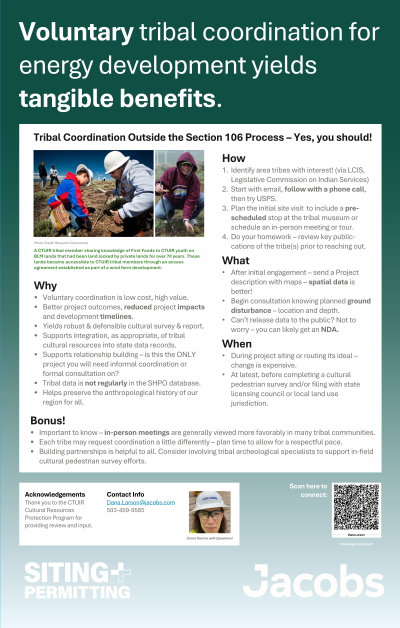Tribal Coordination Outside the Section 106 Process; Yes, you should.


Dana Larson, B.S., MESM (she/her/hers)
Sr. Project Manager, Northwest Transmission Specialist
Jacobs
Happy Valley
Poster Presenter(s)
Responsible development of energy infrastructure in the west, particularly the PNW, now necessitates informal coordination with area Tribes. In the past, unless a project had a federal nexus and triggered Section 106 of the National Historic Preservation Act, informal coordination was not always undertaken, or meaningfully engaged in. As awareness of and respect for ceded lands grows, more and more local jurisdictions will meaningfully oppose a project with tribal opposition. Utilities and developers are entering a new period where early and transparent outreach to interested local tribes is essential for successful land use permitting. Unexpected benefits of this outreach include more robust in-field surveys that are inclusive of tribal cultural resources that may not be identified in the SHPO database and correspondingly more robust Cultural Resource Reports. This is along with expected benefits of less impactful projects. However, without a regulatory process to guide this engagement how do responsible utilities and developers establish limits to allow for practical financial and project construction planning? Let’s discuss solutions to this dilemma to allow reasonable and respectful energy development to proceed and meet the unprecedented rise in energy demand that is coming!
